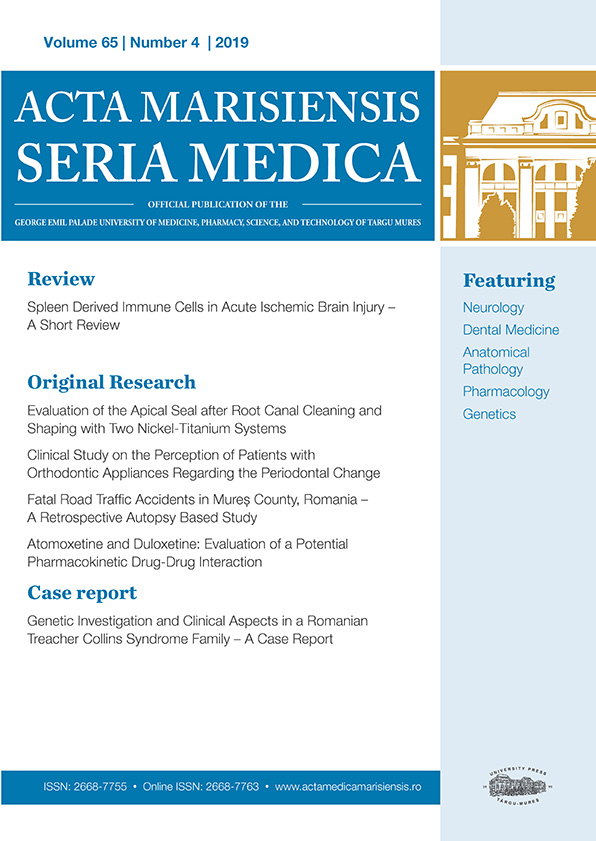Nutrition in pregnancy – impact on anaemia in pregnant women
DOI:
https://doi.org/10.2478/amma-2022-0016Keywords:
nutritional factors, pre-pregnancy BMI, iron deficiency anaemia, iron supplementationAbstract
Aim: Most pregnant women can achieve their caloric and nutritional needs by careful food choices during pregnancy, but there are fairly common situations when pregnant women develop anaemia, which needs to be managed properly to avoid maternal-foetal complications. The main objective of the study was to identify the nutritional factors favoring the occurrence of iron deficiency anaemia in pregnant women.
Methods: Data collection for the cross-sectional study was carried out using a questionnaire that provided information on nutrition and risk factors during pregnancy in a group of patients from Suceava. The questionnaire was given to pregnant women admitted to the Emergency County Hospital „Sfântul Ioan cel Nou” Suceava, Romania, between March and May 2017.
Results: The results showed no direct connection between nutritional factors and the development of anaemia in 46.3% of pregnant women. Although 22.2% of pregnant women received oral iron supplementation, effects on anaemia correction were not observed (p=0.02). We found that weight status did not influence anaemic status (p=0.51), and the presence of anaemia in pregnancy was independent of risk factors for pregnancy (smoking, p=0.05; alcohol consumption, p=0.66), iron absorption inhibitors in the diet (coffee, p=0.33; tea, p=0.53), water intake (p=0.52) or night eating (p=0.27).
Conclusions: Nutrition education is particularly important for the prophylaxis of iron deficiency anaemia in pregnant women. Dietary correction during pregnancy and oral iron supplementation, when appropriate, are essential for the normal course of pregnancy and for the subsequent development of the child.
Downloads
Published
How to Cite
Issue
Section
License
Acta Marisiensis Seria Medica provides immediate open access to its content under the Creative Commons BY 4.0 license.









